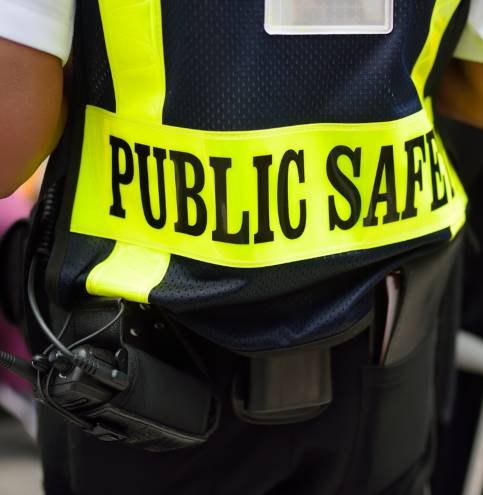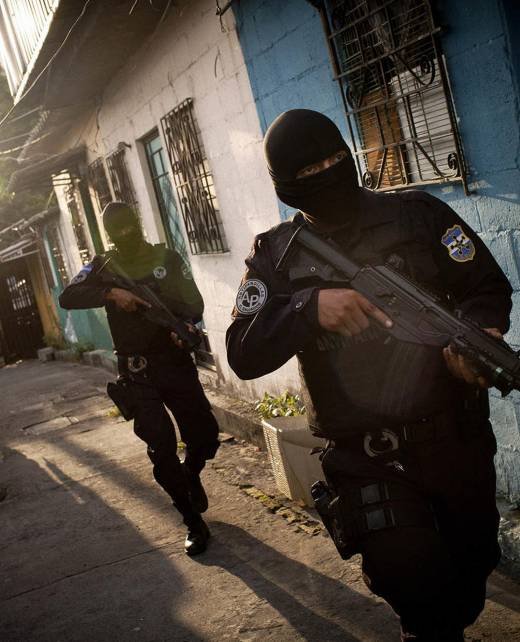In 2024, screening and performing background checks on individuals from El Salvador who are migrating to the United States or already residing in U.S. territory is crucial due to the significant presence and influence of violent gangs like the Mara Salva trucha, (MS-13) and other Salvadoran gangs. Here are the key reasons:
1. Public Safety and Crime Prevention
Gang Violence: The MS-13 and other Salvadoran gangs are notorious for their involvement in violent crimes, including drug trafficking, extortion, human trafficking, and murder. Background checks help to identify individuals with gang affiliations or criminal histories, preventing them from entering the U.S. or engaging in criminal activities within the country.
Protection of Communities:By screening for gang involvement, the U.S. can reduce the risk of gang-related violence spreading into American communities, thereby protecting residents and maintaining public safety.


2. National Security
Counter-Terrorism Efforts
MS-13 and similar gangs are considered transnational criminal organizations with connections that extend beyond El Salvador. Background checks help to ensure that individuals linked to these groups do not enter the U.S., thereby supporting national security efforts and reducing the risk of organized crime or terrorism.
3. Immigration System Integrity
Preventing Fraudulent Entry
Ensuring Legal Compliance

4. Protection of Vulnerable Populations
Shielding Asylum Seekers: Many Salvadorans flee their country due to gang violence, seeking asylum in the U.S. Background checks help distinguish between genuine refugees and those who may pose a threat due to gang ties, ensuring that vulnerable individuals receive the protection they need while safeguarding U.S. security.
Preventing Exploitation: Gangs often target vulnerable migrants, including unaccompanied minors, for recruitment or exploitation. Thorough screenings help to identify at-risk individuals and provide them with appropriate protections.
5. Reducing Gang Recruitment
Preventing the Spread of Gang Culture: Background checks help prevent gang members from entering the U.S. and recruiting new members, particularly among immigrant communities. This reduces the likelihood of gang culture taking root in new areas and perpetuating cycles of violence and crime.
6. International Relations and Law Enforcement Cooperation
Supporting Law Enforcement: By screening Salvadoran migrants, the U.S. can support international efforts to combat transnational criminal organizations. Cooperation between U.S. and Salvadoran law enforcement agencies is crucial in tracking and apprehending gang members who may attempt to flee to the U.S.
Maintaining Diplomatic Relations: Effective background checks demonstrate the U.S. commitment to upholding the rule of law, which is essential in maintaining strong diplomatic relations with El Salvador and other countries in the region.
7. Economic and Social Stability
Ensuring Safe Workforce Integration: As Salvadoran migrants seek employment in the U.S., background checks ensure that those entering the workforce do not pose a threat due to criminal or gang-related activities. This helps maintain a safe and productive work environment.
Preventing Social Strain: By screening for gang affiliations, the U.S. can prevent the spread of violence and criminal activities that strain social services and law enforcement resources, thereby contributing to the overall stability of communities.
8. Humanitarian Considerations
Protecting Human Rights: Background checks help to ensure that those who have been victims of gang violence in El Salvador receive the appropriate protection and support in the U.S., while preventing those who perpetrate violence from gaining entry.
In summary, conducting thorough background checks on individuals from El Salvador is essential for protecting public safety, maintaining the integrity of the immigration system, supporting national security, and ensuring that the U.S. remains a safe haven for those fleeing violence while preventing the spread of criminal activities associated with gangs like MS-13.
To keep our safety here in America, we have implemented a shield to screen Salvadorean individuals in our algorithm.
We want to clarify: Not all Salvadorean Individuals are involved in illegal or criminal activities.
However, it’s imperative to develop a continuity strategy to mitigate risks with these individuals, avoiding potential and unpleasant surprises in doing business like simply leasing properties or granting jobs with no idea of who that person is.
Building a circle of trust it’s too important, but it is also important to develop close business or relationships with your potential Salvadorean clients.
However, creating a circle of trust. Shouldn’t be confused with accepting all kinds of applications from untraceable individuals.
Considering the use of our background check information, with legal actions from the courts of Salvadorean will provide a safer environment for your business.
Becoming your 1st step verification for your Salvadorean Risk mitigation strategy. Helping you to visualize legal records from those Individuals. Preparing you to lessen the effects of threats transferred by Salvadorean individuals, to your environment.
What is Risk Reduction?
In other words: A systematic reduction in the extent of exposure to a risk and/or the likelihood of its occurrence. It’s also called risk reduction.
Comparable to risk reduction, risk mitigation takes 5 Strategy steps to reduce the negative effects of threats and possible disasters on business continuity.
1. Accepting the Risk
Accepting the risk means that while you have identified a known risk. You simply accept that it might something happen and decide to deal with it if it does.
2. Avoiding the Risk
In order to avoid a potential risk, you may change your plans completely. Avoiding a risk, is a good strategy for when a risk has a potentially large impact on your plans or projects.
3. Transferring the Risk
Transferring the risk is definitely a risk management strategy and it’s more common in situations where there are more parties involved.
In other words: You transfer the impact and management of the risk to someone else.
4. Mitigating the Risk
Mitigation the risk means, that you limit the impact of a risk, so that if it does occur, the problem it will create will be smaller and easier to fix and the easiest to implement.
5. Exploiting the Risk
Sometimes good things happens after all. Reducing Risks understanding the last 4 strategy steps: Acceptance, Avoidance, Transference and Mitigation are the best solution when facing a negative impact in your plan or organization.
However, a negative impact can turn into a positive impact. And sometimes, we need to analyze all the possibilities in order to take advantage exploiting this “Negative situation” turning it into a positive opportunity.


